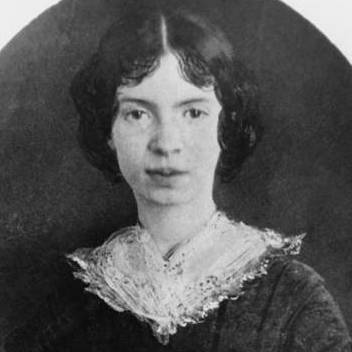A Bird, came down the Walk -
He did not know I saw -
He bit an Angle Worm in halves
And ate the fellow, raw,
And then, he drank a Dew
From a convenient Grass -
And then hopped sidewise to the Wall
To let a Beetle pass -
He glanced with rapid eyes,
That hurried all abroad -
They looked like frightened Beads, I thought,
He stirred his Velvet Head. -
Like one in danger, Cautious,
I offered him a Crumb,
And he unrolled his feathers,
And rowed him softer Home -
Than Oars divide the Ocean,
Too silver for a seam,
Or Butterflies, off Banks of Noon,
Leap, plashless as they swim.
Published:
None
Length:
Regular
Literary Movements:
Romanticism
Anthology Years:
2022
Themes:
Nature
Literary Devices:
Imagery
visually descriptive or figurative language, especially in a literary work
Metaphor
a comparison between two unrelated things through a shared characteristic
Personification
the attribution of human qualities to a non-human thing
Sensory Detail
words used to invoke the five senses (vision, hearing, taste, touch, smell)
Transferred Epithet
When an adjective usually used to describe one thing is transferred to another.

